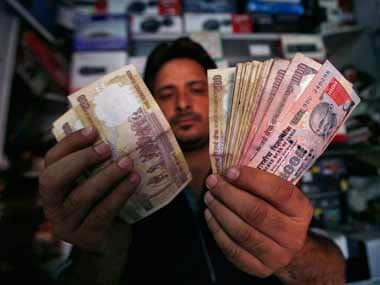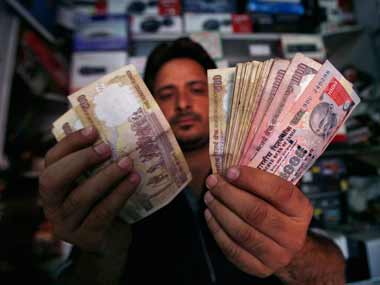It’s ironic, with a touch of Kafka. The demonetisation issue lurks among other issues — most of them not very sharply focused — that will decide the outcome of the key round of Assembly elections in February and March. And yet, most voters don’t quite seem to know what to make of the issue. Sharda, who makes a living by cleaning homes in the touristy Arpora area of Goa, is one of the few who is quite clear. “I’m not voting for Modi again. Who knows what he might do next. Look at what he did with money,” she says, a trifle shrilly. Given the extent to which demonetisation has impacted Indians across the country over the past ten weeks, one might have expected that to be a commonplace reaction. And yet, in the course of a range of conversations about the elections over the past few days, Sharda is one of the few voters who brought up this issue. One thing is clear even in a state like Goa: this election is about Modi. When I ask a BJP activist near the large, bright, recently-built old Ram temple at Anjuna whether it is about the current BJP chief minister or Manohar Parrikar (the former chief minister and current Union defence minister) or about Modi, he says without a moment’s hesitation: Modi. But here’s the catch: for Alex, who runs a beach shack at Calangute, demonetisation is just about the only issue for which he is willing to grant the BJP positive points. Amid a litany of complaints, he says that “demonetisation may be good for the economy but, for the moment, our business is suffering.” His grouse is about implementation rather than policy. He hasn’t been able to get a ‘swipe machine’, he says even so many weeks after the cash crunch began. [caption id=“attachment_3215402” align=“alignleft” width=“380”]  Representational image. Reuters[/caption] A number of foreign tourists were reduced to desperation in the weeks after demonetisation began, he adds. Some returned home much sooner than they had planned. And many tours have been cancelled since. And yet, he grants that the wrenching step will surely be good for the country in the long term. This, mind you, is a man who says up front that he is a Congress supporter this time, even though he rooted for the BJP five years ago. Extraordinary public backing In the light of such confusing responses to the issue in the political arena, a survey that shows that 80 percent of people across the country back demonetisation, is timely. It clearly indicates that demonetisation is unlikely to negatively impact the ruling party at the hustings. Indeed, the survey found that an impressive 80 percent plus of the Indian people approve of demonetisation. The most striking finding was that segments of the population that one might have thought would be unhappy also approved. Eighty-five percent of rural Indians, for instance, eighty percent of women, and 77 percent of those aged more than 60. Even, about 80 percent of those who said that they prefer cash transactions. One might have suspected that such a survey was biased had it not been conducted by an independent and credible organisation, the Benguluru-based FourthLion. The company’s team of young professionals specializes in digital marketing. A second plus for this survey is its wide range. The firm used phone-based polling, both by identifying a wide mix of respondents from its database and through random dialling. In addition, it separately conducted a field survey in rural areas to cover those less likely to have access to a mobile phone. This field survey was conducted in 17 large states: Bihar, West Bengal, Odisha, Assam, Jharkhand, Uttar Pradesh, Rajasthan, Punjab, Haryana, Andhra Pradesh, Karnataka, Tamil Nadu, Kerala, Maharashtra, Madhya Pradesh, Gujarat and Chhattisgarh. A third plus: the surveys were multilingual — conducted in ten languages: Hindi, Bengali, Marathi, Gujarati, Tamil, Kannada, Malayalam, Telugu, Odiya and English. Given these various factors, this would seem to be the most authentic feedback we have yet had about a process that has shaken India up more than any in recent times. The bottom line is: it does seem that the ruling party has ridden out the potential storm of resentment in the run-up to these crucial assembly elections. Even if other factors work against it, this one apparently will not dent it substantially.
The demonetisation issue lurks among other issues — most of them not very sharply focused — that will decide the outcome of the key round of Assembly elections in February and March. And yet, most voters don’t quite seem to know what to make of the issue.
David Devadas is an expert on politics and geopolitics. Formerly a Senior Fellow at the Nehru Memorial Museum and Library, Visiting Professor at Jamia Millia Islamia, and Political Editor of Business Standard, he is currently Distinguished Fellow at the Institute for Social Sciences. He has written books on Kashmir, on youth, and on history. He has been a radio compere, guest faculty at JNU's Academic Staff College, St Stephen's College and Hindu College. He has worked for the Indian Express, The Hindustan Times, India Today, The Economic Times and Gulf News. His most impactful article, on a murder cover-up, prevented a Congress President from becoming prime minister. One led to the closure of an airline, and another created a furore and consequent clean-up in Delhi's health department. Several have correctly predicted election results in key states, and a series of reports from Srinagar made the government aware of how unsettled the situation there was in 1990. He is an alumnus of St Xavier's School, St Stephen's College, and the Indian Institute of Mass Communication. He has lived for extended periods in Geneva and Berlin, and has traveled to almost 50 countries. He enjoys various kinds of music, theatre, design, architecture and art. see more


)
)
)
)
)
)
)
)
)



